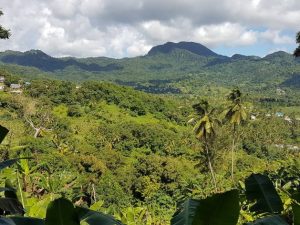U.S. agriculture is contributing to climate change and exacerbating rural problems. The failure of industrial agriculture and the fact that the US is not feeding the world’s hungry is exemplified by the state of Iowa. Iowa mainly feeds pigs, chickens, the junk food industry, and cars; half of its corn goes to ethanol, and 30% of soybean oil is used for biodiesel fuel. The state has lost half its topsoil to erosion, the product of excessive row-cropping. The state’s agriculture is mainly rain-fed, but its aquifers are being pumped at unreplenishable rates. Meanwhile, the excessive chemical applications needed for corn and soybeans pollutes drinking water and destroys habitats for those species agriculture needs to grow food. The excessive fertilizer applied to Iowa’s corn fields emits clouds of nitrous oxide, a greenhouse gas more potent than carbon dioxide. A study estimates that by 2075, Iowa corn yields could be 20-50% lower than they are today due to increased storms and droughts.
There is therefore a need for a system wide shift that cuts carbon emissions, reduces vulnerability to climate chaos and prioritizes economic justice – ‘a just transition’ (Item 2). Two elements are essential: agriculture based on principles of ecology, and economic policies that end overproduction of cheap food and re-establish fair prices for farmers.
Agriculture generates about 9% of U.S. greenhouse gas emissions from sources that include synthetic fertilizers and intensive livestock operations. These emissions can be significantly curbed through adopting methods of agroecology. For instance, cover crops such as legumes, rye and alfalfa reduce soil erosion, improve water retention and add nitrogen to the soil, thereby curbing fertilizer use. When these crops decay, they store. Another strategy is switching from row crops to agroforestry, which combines trees, livestock and crops in a single field, which can increase soil carbon storage by up to 34%.
Meanwhile, in 2018, less than half of U.S. growers made any income from their farms, and median farm income showed net losses. Reconstructing rural America and decarbonizing agriculture will require addressing system wide issues of politics and power. A strong starting point is connecting ecological practices to economic policy, especially price parity – the principle that farmers ought to be fairly compensated in line with their production costs.
– Third World Network
https://heated.medium.com/world-hunger-is-on-the-rise-bd2ae8fc96c4




